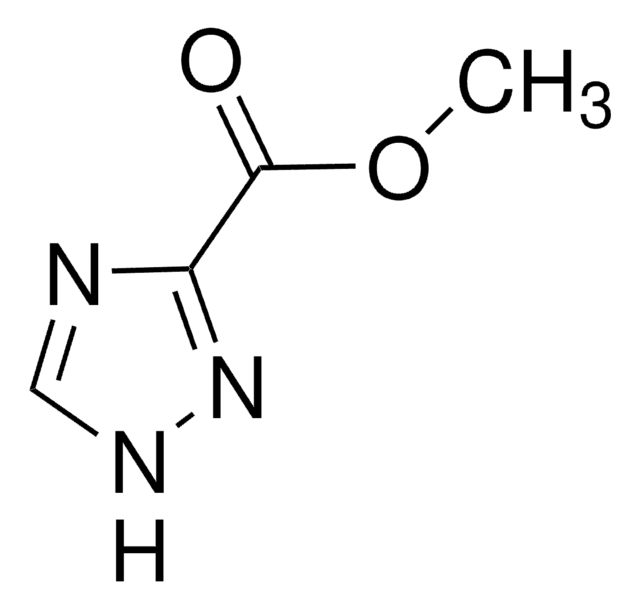534102
Methylamine solution
33 wt. % in absolute ethanol ((denatured with 1% toluene))
Synonym(s):
Monomethylamine
About This Item
Recommended Products
Quality Level
greener alternative product characteristics
Design for Energy Efficiency
Learn more about the Principles of Green Chemistry.
sustainability
Greener Alternative Product
concentration
33 wt. % in absolute ethanol ((denatured with 1% toluene))
impurities
≤1.0% water
refractive index
n20/D 1.360-1.372
density
0.756 g/mL at 25 °C
functional group
amine
greener alternative category
, Enabling
storage temp.
2-8°C
SMILES string
CN
InChI
[1S/CH5N/c1-2/h2H2,1H3]
1S/CH5N/c1-2/h2H2,1H3
InChI key
[BAVYZALUXZFZLV-UHFFFAOYSA-N]
BAVYZALUXZFZLV-UHFFFAOYSA-N
Looking for similar products? Visit Product Comparison Guide
General description
Application
Signal Word
Danger
Hazard Statements
Precautionary Statements
Hazard Classifications
Eye Dam. 1 - Flam. Liq. 2 - Skin Corr. 1B - STOT SE 3
Target Organs
Respiratory system
Storage Class Code
3 - Flammable liquids
WGK
WGK 1
Flash Point(F)
-9.0 °F - closed cup
Flash Point(C)
-22.8 °C - closed cup
Personal Protective Equipment
Choose from one of the most recent versions:
Already Own This Product?
Find documentation for the products that you have recently purchased in the Document Library.
Customers Also Viewed
Our team of scientists has experience in all areas of research including Life Science, Material Science, Chemical Synthesis, Chromatography, Analytical and many others.
Contact Technical Service









